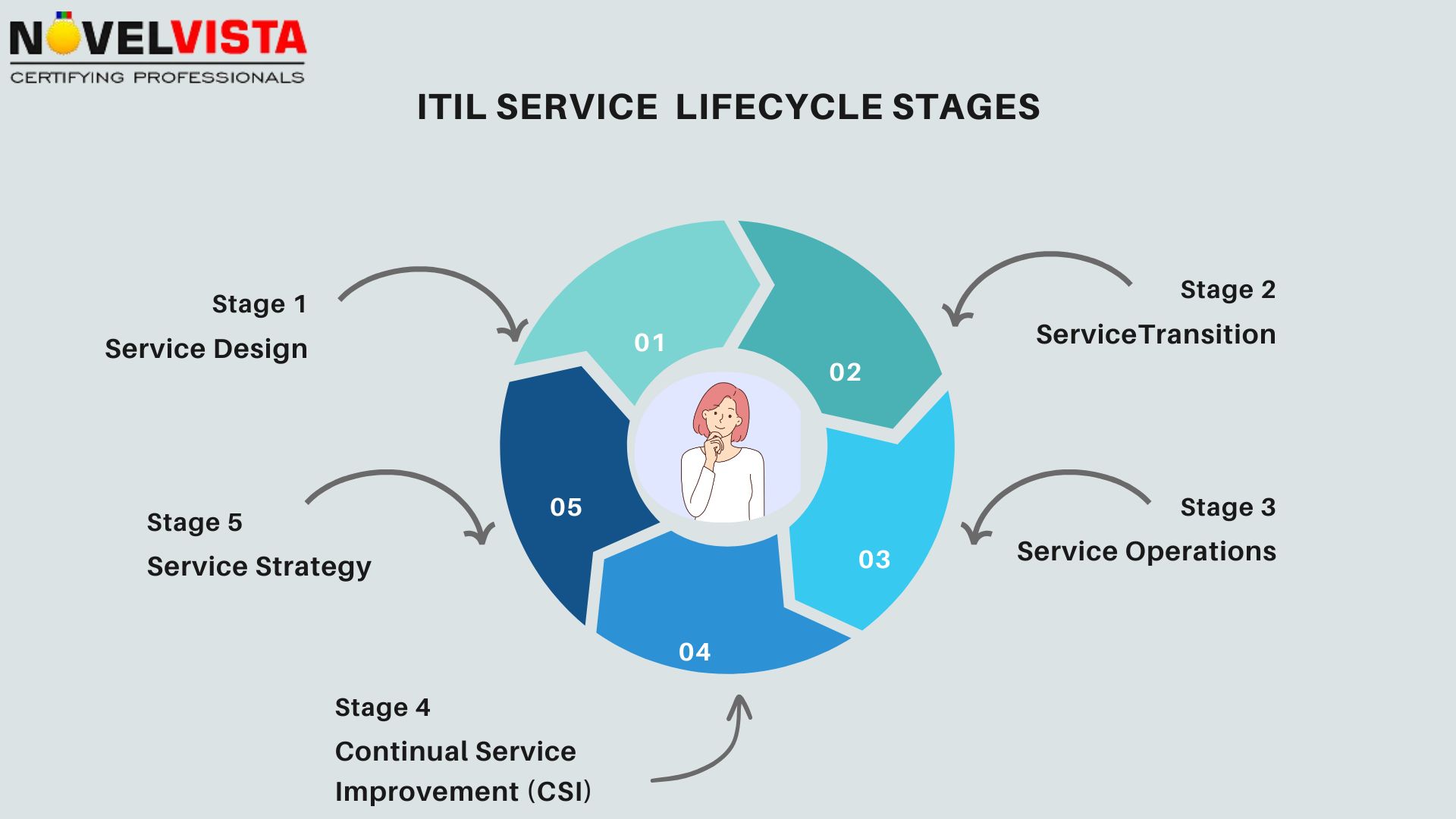How does the ITIL service management contribute to social responsibilities by promoting sustainable practices, ethical operations, and community-focused solutions in 2025? The answer is through the promotion of ethical data management, sustainability, and digital inclusiveness, But here’s the major question, is ITIL service management really necessary? And if it is needed, what are their social responsibilities?
ITIL service management improves accessibility, assures privacy compliance, cuts down on IT waste, and coordinates IT services with CSR objectives. ITIL helps businesses make a lasting beneficial effect while maintaining moral and sustainable IT practices by enhancing productivity, security, and risk management.
In this guide, you will learn about ITIL service management, promoting sustainability, and roles and responsibilities. So let's get started!
In ITIL, a service is a way to help customers get what they need without having to worry about the costs or risks. There are periods in which the words "service" and "core service," "IT service," and "service package" are used alike. This highlights that service is more than simply a technology or product; it gives clients value by meeting their requirements and expectations.
Furthermore, it emphasizes that clients are not required to bear the expenses and hazards of service delivery. Services are further divided into 2 primary categories by ITIL:
In general, the ITIL definition of a service emphasizes providing results rather than just technology or products to add value for clients.
To effectively satisfy business goals, ITIL Service Management is an organized way to create, deliver, manage, and improve IT services. The Information Technology Infrastructure Library, or ITIL, is a collection of best practices that assist businesses in matching IT services to business goals while guaranteeing value delivery, dependability, and ongoing development

ITIL has a big impact on social responsibilities because it helps businesses incorporate inclusive, sustainable, and ethical practices into their IT operations. How ITIL supports social responsibility is as follows:
The ITIL service management contributes to social responsibilities through improved service delivery that prioritizes community well-being and ethical governance.
ITIL (Information Technology Infrastructure Library) is a framework that helps businesses manage IT services efficiently. It focuses on improving service quality, reducing costs, and aligning IT with business needs. By following ITIL best practices, organizations can enhance productivity, minimize risks, and deliver better customer experiences.
ITIL improves IT services while addressing regulatory and business needs. Trusted by major organizations like the IRS, Microsoft, Disney, and British Airways, it offers many benefits, including:
Align business with IT While ITIL doesn’t create business strategies, it supports them. Put another way; the ITIL framework enables IT to serve as a service provider and become a key and more strategic element of the business.
Third-party project management systems can be integrated with ITIL to accelerate processes while boosting communication and visibility between various teams inside the organization.
Continuous improvement is made possible by the agile environment that ITIL processes offer, which enables companies to react swiftly to shifting needs without interfering with services. One of the key elements of IT compliance is change management, which makes it possible to track and record any significant actions taken on the IT systems and applications.
In a service-oriented approach, bills can mount up quickly and to your customers' dismay if there is no clear visibility into prices. You may make better budget choices and closely monitor expenses using the ITIL framework's processes, which are based on comprehensive data.
Since things change so quickly these days, businesses must be adaptable to stay ahead of the competition. Businesses may concentrate on innovation, react fast to today's rapidly changing technology environment, and ultimately preserve customer loyalty by utilizing the ITIL framework's defined protocols and best practices.
Companies can evaluate performance, undertake root cause analysis, address issues, and prevent future occurrences by implementing the framework's monitoring, incident, and problem management techniques.
In order to better manage customer expectations by guaranteeing that IT services are highly accessible, ITIL incorporates business relationship and service-level management processes that offer insight into the customer experience.
Hope your question about how the ITIL service management contributes to social responsibilities is answered. ITIL Service Management makes a significant contribution to social responsibility in addition to improving company efficiency.
By encouraging sustainable IT practices, strengthening ethical governance, promoting community participation, developing staff well-being, and incorporating CSR plans, ITIL guarantees that IT services are in line with more general corporate social responsibility objectives. Organizations' social responsibility role will only grow as they continue incorporating ITIL principles into their operations, creating a more ethical and sustainable IT sector.
Confused about our certifications?
Let Our Advisor Guide You